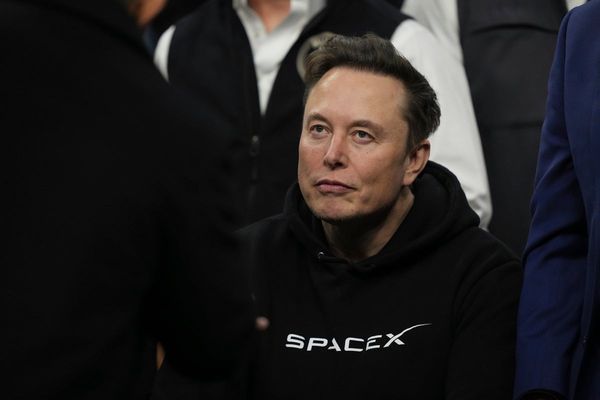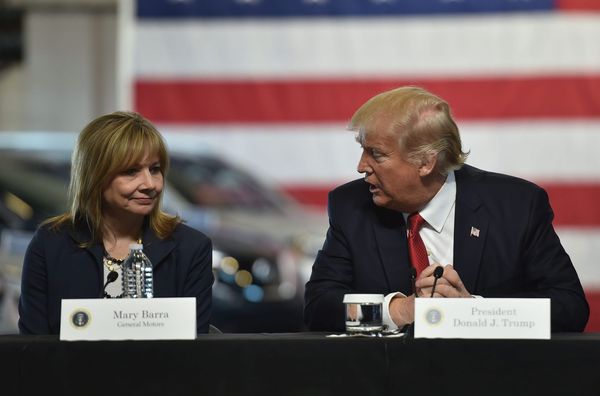While France's overall shift to the right quickly pushed issues of immigration and security to the top of the election debate, recent demonstrations show people are actually more bothered by their diminishing purchasing power. Now candidates for the April vote are falling over themselves with promises to keep money in people’s pockets.
“The price of everything is going up: gas, electricity, food, petrol, it’s just not sustainable,” says Jocelyne, a pensioner in Paris.
She’s not poor – her pension is similar to France’s median income of around 26,000 euros per year – but she says she has to keep an eye on what she spends while "big companies are raking it in".
While Jocelyne didn’t join last Thursday’s demonstration to demand higher wages, she’s a member of a silent majority that's feeling the pinch.
France’s statistics institute, Insee, has predicted that purchasing power will drop 0.5 percent in the first six months of this year – a prognostic that has sent shivers down the government’s spine just nine weeks before the presidential polls.
“The increase in prices tops the bill with the French population,” Bruno Jeambart, co-president of Opinion Way polling institute, told RFI. Their latest data showed 59 percent of people put purchasing power ahead of social welfare, security, immigration and the environment.
An earlier survey by Odoxa showed that 80 percent of the French felt their purchasing power had gone down over the last year, while 94 percent believed that lockdowns had sped up the increase in prices.
Better off?
The price of petrol at the pump is at a record high with prices rocketing by 2.8 percent in 2021. But the government has been at pains to reassure the French that they’ve in fact been better off since Emmanuel Macron came to office in 2017.
“The richest and the poorest, everyone has seen an increase in their purchasing power,” the President said in a televised interview last December.
The government has indeed taken, or announced, a number of measures. It scrapped the council tax (taxe d'habitation) on primary residences, introduced a minimum retirement pension of 1,000 euros per month for farmers, increased salaries of the lowest-paid public sector workers, and gave frontline health workers a bonus.
With bitter memories of how fuel hikes in late 2018 sparked lengthy anti-government protests by so-called “yellow vests”, the government has been careful to cushion France from the massive global increases in gas and oil prices.
After handing out a 100-euro cheque to some 38 million people, Prime Minister Jean Castex announced a 10 percent rise in compensation for work-related transport.
- France increases gas tariffs but promises no further hikes before April 2022
- Fuel hike headache for Macron as ministers vote on 2022 budget
Most significantly, the government has stood by its promise to cap electricity price hikes to 4 percent in 2022, even if it meant battling with the European Commission and energy giant EDF, of which the state is a major stakeholder.
Its CEO said the move would cost the group some 8 million euros.
Overall, data from the treasury, backed up by Insee, supports the government’s version of events. Between 2017 and 2022 gross revenue per household increased by 8 percent, close to double that of the period 2013-2017.
However, a study by the independent Institut des politiques publiques (IPP) in November 2021 was more nuanced, finding that the poorest 5 percent of the French population had seen a drop in their standard of living over the last five years.
Differing perceptions
The seemingly contradictory data is due partly to differences in the way purchasing power – a complex notion – is calculated.
But why do the French feel they’re worse off when the data suggests it’s not the case?
For Thierry Pech, head of the Terra Nova think tank, there’s a “distortion in perception” between the way individuals see their financial situation and the way the economists and government officials do their own maths.
“It doesn’t mean they’re mistaken, but they’re not talking about the same things,” he told Le Monde daily.
Experts analyse how a household’s available income evolves over time – the budget it has after tax and once it’s received benefits.
But for most people, their budget is what’s left after they've deduced fixed monthly outgoings such as rent, heating, insurance, internet connection, insurance, school canteens, and unavoidable expenses such as food and transport.
According to Insee, those kind of expenses have increased over the last 50 years, and by 29 percent in 2019. What’s more fixed outgoings account for nearly a third of revenues of the poorest 20 percent, but only a fifth of the top 20 percent.
Pech says people see their purchasing power as “the bit you have left over when you’ve paid for all those outgoings”.
He also outlines that price hikes on things you see/use on a daily basis such as fuel or cigarettes – even if it’s only a few cents – tend to make more of an impression than, for example, being relieved of council tax, even if the latter is a big saving over the year.
Wages
The perception that spending power is slipping is also aggravated by the large profits registered by companies – such as French pharma giant Sanofi – during the pandemic.
“Out of 7 billion euros in profits, around 5 billion euros will go to shareholders in the form of dividends,” Pascal Collemine, union rep with the CGT at Sanofi, told RFI.
“Dividends are increasing every year but salaries are stagnating, even diminishing, in some sectors.”
Boris Plazzi, also of the CGT union, highlighted “mounting anger in the country, a fighting spirit that we haven’t seen for a long while on the question of salaries”.
- France fends off criticism of Macron's final budget before re-election bid
- French unions fight for better wages in nationwide strikes
Raising salaries is clearly one way of improving spending power, and Labour Minister Elisabeth Borne has been applying pressure of French companies to make an effort, not least in view of growth of 7 percent forecast for 2022.
Geoffroy Roux de Bézieux, head of the Medef bosses union, says the time is right for upping salaries.
“When margins are maintained or increased there is room for manoeuvre in negotiations,” he told RFI.
“The balance of power is beginning to shift in many sectors because there are problems of recruitment [in hospitality, restaurants and bars], so there’ll be significant increases in salaries negotiated at the beginning of this year.”
De Bezieux recognised this “wouldn’t resolve everything” because of complicated increases in the price of real estate and energy.
Promises
The complexity of boosting purchasing power has not deterred some of the big presidential candidates from making generous promises.
Christiane Taubira, freshly nominated left-wing candidate via the popular primary, said the issue at hand was “to respond to the problem of purchasing power for millions of French people”.
Valérie Pecresse, the right-wing candidate for the Republicans (LR) party, has promised an extra 10 percent to some 12 million employees who earn less than 3,000 euros net per month.
Communist Fabien Roussel says he will increase the minimum wage (1,603 euros gross) by 20 percent and fix pensions at 1,500 euros.
Socialist party candidate Anne Hidalgo says she also intends to increase the minimum wage but by 15 percent.
Hard-right Marine Le Pen proposes to slash VAT on energy from 20 percent to 5 percent and to scrap the TV licence fee, which costs 138 euros in mainland France and 88 euros in overseas territories.
The ruling LREM party, meanwhile, is still waiting for its leader to declare himself a candidate.







